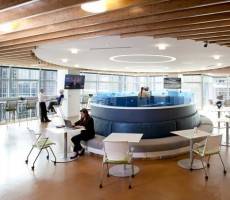October 1, 2014
UK Government urged to do more to support country’s technology sector
The technology sector trade association techUK has published a new report urging politicians and policy makers to acknowledge the UK’s role in the global technology market, create the conditions in which it can thrive and oversee the roll-out of new digital services across the public sector and beyond. The body, which has more than 850 members employing 500,000, claims that Securing our Digital Future: the techUK manifesto for growth and jobs 2015-2020 offers a blueprint for jobs growth in the tech sector and the chance for the UK to establish a reputation as a world leader in the global digital revolution. The report coincides with the announcement that the UK Government has commissioned a report to explore how Britain can lead the development of the sharing economy based on the success of firms such as Airbnb and Zipcar. Ahead of next year’s General Election, the techUK report calls on the next government to use technology to improve the quality and accessibility of public services, increase productivity and secure a million new jobs.























September 16, 2014
The culture of presenteeism is not all just fun and games
by Mark Eltringham • Comment, Flexible working, Workplace, Workplace design
(more…)